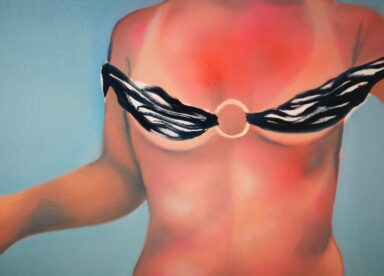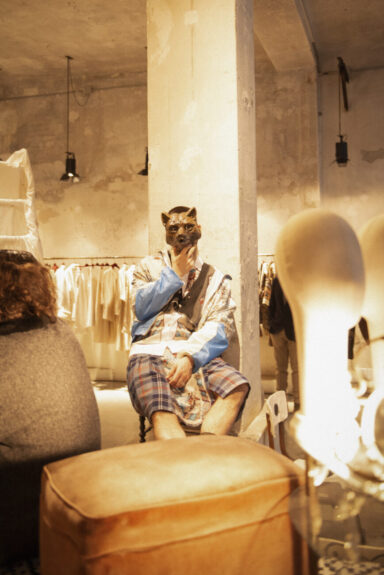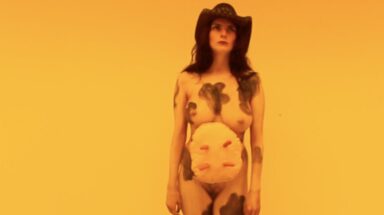INTERNATIONAL DAY FOR THE ELIMINATION OF VIOLENCE AGAINST WOMEN: THE SHADOW PANDEMIC FOUGHT BY HARD-HITTING FEMALE ARTISTS UP FOR ANYTHING
Text by Fiammetta Cesana
On November 25, 1960, the three sisters Patria, Minerva and Teresa Mirabal were tortured and killed by a secret military service for their activism against the Dominican dictatorship of Rafael Leónidas Trujillo. Their merciless assassination fired up public opinion to such an extent that it led to the disruption of Trujillo’s regime (1930-1961). In honor of these three incredibly valiant sisters, who on the day of their murder had gone to visit their husbands in prison held for supporting the resistance, the UN decided to establish on that date the International Day for the Elimination of Violence Against Women.
Since that event which marked modern history by condemning a society unable to protect its women and girls, unfortunately, despite a growing awareness, the facts we have witnessed are not encouraging at all. Contrarily, today more than ever the acts of violence against women and children, especially within the home, are dramatically accentuated due to the coronavirus lockdown. As health-care institutions and service delivery organizations around the world are systematically committed to fighting the pandemic, the support for women victims of violence has inevitably failed.
‘One in three women worldwide experience physical or sexual violence mostly by an intimate partner. (…) Since the outbreak of Covid-19, emerging data and reports from those on the front lines, have shown that all types of violence against women and girls, particularly domestic violence, has intensified. This is the Shadow Pandemic growing amidst the Covid-19 crisis and we need a global collective effort to stop it.’ UN Women reports
Many side-battles have arisen as a result of the health crisis, from economic to social and cultural ones, and the exponential increase of gender-based violence – an increase of 700% in calls to helplines has been reported by UK charity Refuge in April – is pivotal.
This year, in fact, November 25th is a date that sees us even more united and eager for change. On our side, what we want to offer you today is a look at this exhausting daily war being fought by great women with art. Two militant artists in particular impressed us with the courage, sacrifice and transparency of their works.
The internationally known and award-winning photojournalist who has the female empowerment in her own name, Donna Ferrato (Donna means ‘woman’ in Italian), has decided to make a video with the composer Gabriele Ciampi about the book ‘Holy’. Collecting some of her toughest images, the photographer documents perturbing moments lived by common women and young girls facing abuse and violence. The strength and sensitivity of this artist, able to make her camera a weapon against neglect and ignorance on the consequences of this public and private war, lies in respecting the purity of the portrayed women, whose beauty and integrity never get tainted by the brutality they suffer. Here the link to watch the video, impossible to be embedded due to sensitive content: https://www.youtube.com/watch?v=xu3swfir1xM&has_verified=1
Born and raised in the United States, Donna openly sided with Democrats condemning the controversial attitude of supremacist groups that oppose women’s right to abortion but then destroy the very value of life, which they uncompromisingly pronounced themselves for, according their interests.
‘I don’t understand the hypocrisy of people in this country, not just white men, but white women too. I don’t understand the hypocrisy of it all. People who claim to really care about every life, the unborn life, and yet they will do nothing to help these children after they are born.’ Ferrato has recently argued in a interview with The Guardian.
The photojournalist also sends a message of positivity towards the change in her country that began with the election of Joe Biden and his vice-president Kamala Harris. In favor of this progress which we all place our hopes into, more than ever in this very day of important reflections, Donna is a firm supporter of the social and political role of the art of photography in stirring souls through shocking images. ‘We need to be more pushy, we need to be a lot more gritty, we need to provoke people more’, she stated.
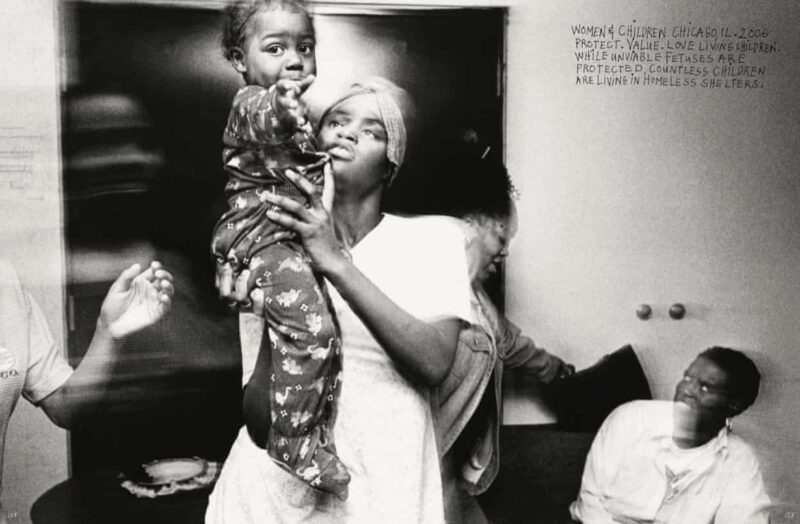
Another great activist whose extreme life’s experience and art deserves our attention today, affirming once again women’s resourceful nature, is Zehra Dogan. The Kurdish artist and journalist, founder of the first entirely female press agency, was imprisoned in Amed, and then moved to the maximum security prison of Tarsus, due to her liberal views and in particular to a drawing released during the Nusaybin’s conflict. Despite numerous calls for her release from important figures on the world art and political scene, such as Ai Wei Wei, the PEN club international and Amnesty International, Zehra had to serve two years in jail, from February 2017 to February 2019, but this didn’t prevent the artist from pursing her work to raise awareness and provocation, as Donna Ferrato’d say, even from behind bars.
In prison in fact Zehra managed to create art with every type of available material, from waste objects, food scraps, letters, cigarette foil up to menstrual blood, even not hers. She then used to wear her operas and give it to her mother during visits so that she could hand it over to a group of activists linked to France.
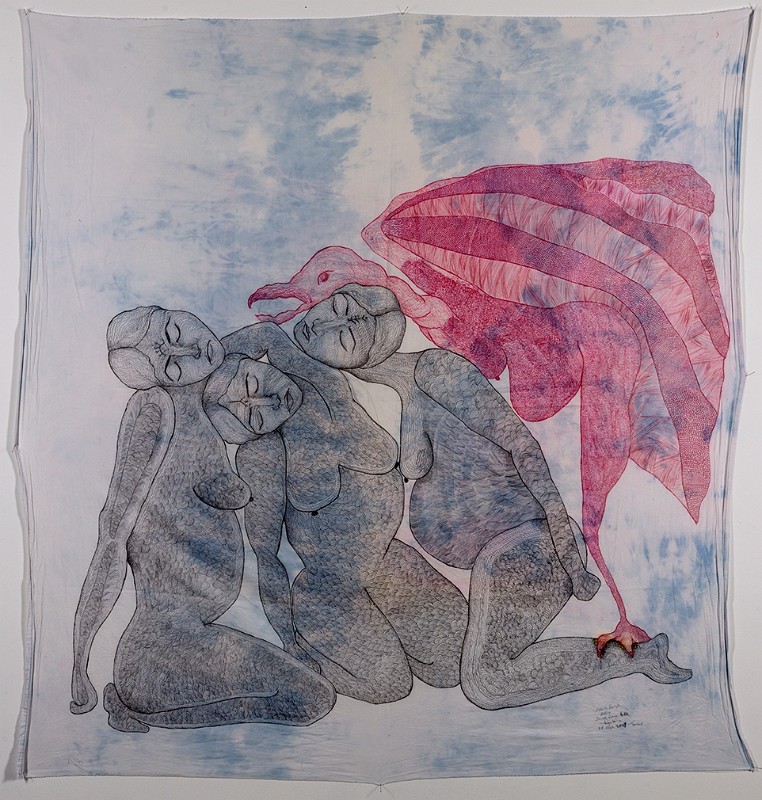
Free from one year now, she resides in London and continues her mission of art and politics. Today, on the occasion of the International Day for the Elimination of Violence against Women, the Pavilion of Contemporary Art (PAC) in Milan hosts on its website the video of the artist’s performance shot last year. The show sees Zehra painting in front of 200 people the portrait of Hevrin Khalaf, general secretary of the Syrian Future Party, activist for women’s rights and on the front line for the recognition of the identity of the Kurdish people, who was killed on 12 October 2019 by militias Arab mercenaries who support the Turkish offensive.
The online performance represents the first act of a whole project, curated by Elettra Stamboulis, of the Milanese pavilion, entitled ‘Il Tempo delle Farfalle. Dedicato a Patria, Minerva, Teresa Mirabal’ (The time of butterflies) which pays homage to Aida Patria Mercedes, Maria Argentina Minerva, Antonia Maria Teresa Mirabal, the three sisters who in the 60s fought the Trujillo’s dictatorship with the battle name Las Mariposas (the butterflies) and whose memory sealed the world’s day to stop violence against women.
